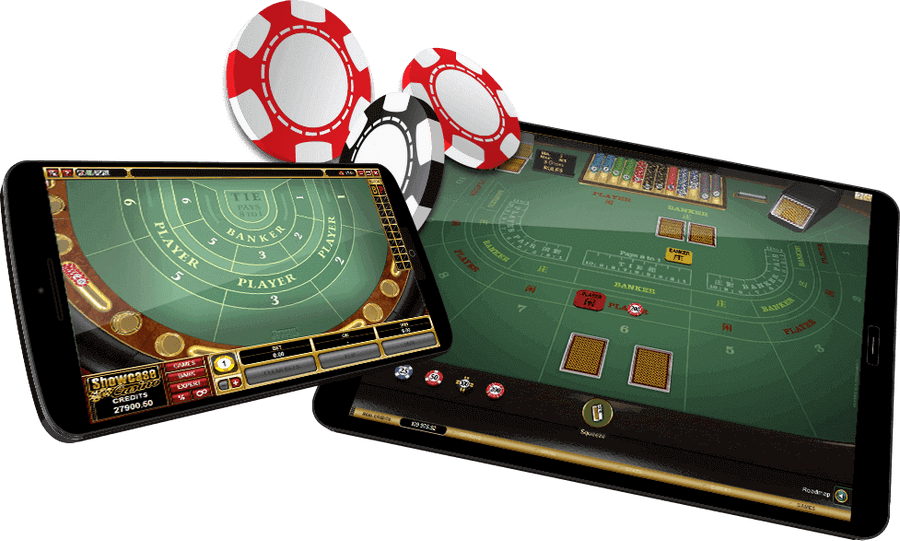Casino floors filled with the sounds of clinking chips and slot machine jingles have long been a staple of entertainment and a haven for those who enjoy games of chance. But in the digital age, as technology reshapes countless industries, casinos, too, face an undeniable truth—the digital world is here to stay. Now, instead of pulling up a stool at a blackjack table in Las Vegas, players are logging into their accounts from smartphones and laptops for top of the line online casino experiences. This transformation is as fascinating as it is profound, marking a monumental shift from physical chips to digital clicks.
But how exactly did casinos adapt to this brave new virtual world? And what does the future hold for the gaming industry?
Where It All Began
The Rise of Online Casinos
The story begins in the mid-1990s when the very first online casino platforms began emerging. Software companies like Microgaming brought the casino to people’s homes, allowing users to play blackjack, roulette, and poker from their desktops. While these early platforms were basic, they set the stage for what was to come—a game-changing revolution that would make the top online casino experience accessible from anywhere in the world.
Regulatory Challenges
Of course, this shift wasn’t without its hurdles. Countries struggled to figure out how to regulate this new form of gambling. Online casinos had to tread carefully, ensuring compliance with a patchwork of laws that differed from one region to the next. However, as governments began to see the significant revenue potential of internet gambling, regulations were tightened—and reputable online casinos were subjected to stringent licensing conditions.
How Technology Revolutionized Gambling
Online casinos didn’t just replicate the casino experience; they reinvented it. With technological advancements driving this transformation, here are the key innovations that cemented the success of the top online casino experience.
1. Mobile Gaming
One of the biggest game-changers? The rise of mobile tech. Mobile apps and responsive websites allowed players to enjoy high-stakes poker games or spin slot reels during their lunch breaks, entirely untethered from a desktop or casino floor. Today, smartphones account for the majority of online casino traffic—a testament to the incredible flexibility they offer.
2. Live Dealer Games
What many gamblers missed in the early days of online casinos was the human connection—the camaraderie, the friendly smack talk, and even the thrill of watching a real dealer shuffle the cards. Enter live dealer games. With high-definition video streaming, players can now join live blackjack or roulette tables that deliver that authentic, in-person casino atmosphere, elevating the top online casino experience like never before.
3. Blockchain and Cryptocurrencies
The 2010s ushered in another revolution—crypto. Online casinos jumped aboard the blockchain train, using cryptocurrencies like Bitcoin to offer anonymous, secure payment options. Blockchain also ensured provable fairness in games, allowing players to trust that the dice or cards weren’t rigged.
4. Gamification
To stand out in a competitive market, online casinos began gamifying their platforms. They introduced achievements, loyalty points, leaderboards, and daily challenges to keep players engaged, leveraging psychology and game mechanics to build digital experiences every bit as exciting as physical casino floors.
5. Virtual Reality (VR) Casinos
While still in its infancy, VR technology promises to take gambling to another level. Imagine donning VR goggles and stepping into a hyper-realistic virtual casino where you’re surrounded by other players, vibrant slot machines, and luxurious décor. The possibilities are limitless, and VR may soon become the ultimate top online casino experience.
The Social Component
One might think that the shift to digital gambling would dilute the social aspect, but in reality, it’s fostered new forms of community. Live chat features, multiplayer tournaments, and social media integrations have transformed online gambling into a collective experience. Whether it’s competing with players worldwide or simply bonding over shared wins and losses, the sense of belonging remains intact—even in the virtual sphere.
The Challenges of the Digital Age
While the shift to the digital age has brought undeniable advantages, it hasn’t been without challenges. Cybersecurity remains a critical concern—after all, no gambler wants their personal data at risk. Platforms also face mounting pressure to ensure fairness, prevent fraud, and promote responsible gambling.
Furthermore, with the explosion of choice in online casinos, ensuring that platforms provide the top online casino experience has become a challenge of differentiation. Players are looking for sleek interfaces, engaging game selections, rewarding bonus structures, and excellent customer service. Casinos that can’t deliver risk losing out in a hyper-competitive market.
A Digital Revolution That’s Far from Over
The move from chips to clicks has revolutionized the gambling industry in ways few could have envisioned just a few decades ago. Today, the top online casino experience offers not just convenience but innovation, community, and personalization that rivals—or even exceeds—the traditional casino experience.
For players, the options are today almost endless, and for operators, the opportunities are boundless. The digital age isn’t the end game for casinos; it’s the launching pad for something even bigger. Whatever the future holds, one thing is certain—the chips are down in the battle for online hearts and minds.
